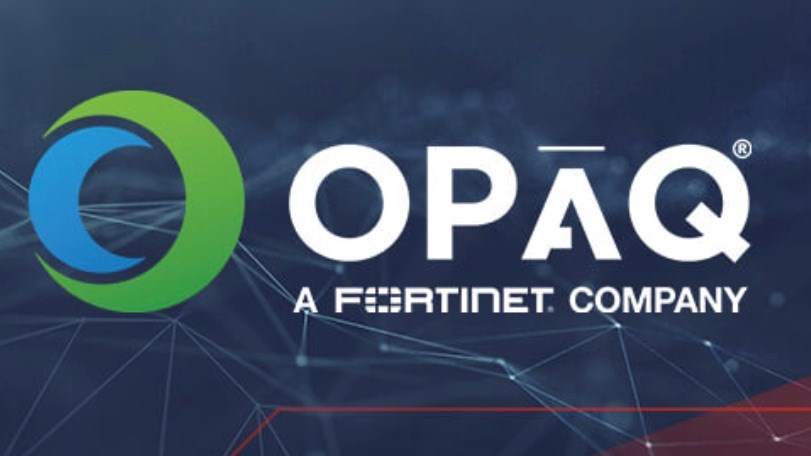
- Fortinet acquires OPAQ Networks
- Red Hat stars (again) in IBM’s Q2
- Limelight capitalizes on CDN demand
The expansion of Fortinet’s security empire and Red Hat’s ongoing commercial success are the pick of this news crop.
- Fortinet has acquired OPAQ Networks, a Secure Access Service Edge (SASE) specialist, for an undisclosed sum. OPAQ’s Zero Trust Network Access (ZTNA) cloud solution has been designed to protect organizations’ distributed networks, “from data centers, to branch offices, to remote users, and Internet of Things (IoT) devices,” notes Fortinet. “Now, we will deliver the most complete SASE platform on the market with the broadest security and industry-leading SD-WAN and networking offerings that can all be delivered to customers and partners through a flexible, cost efficient and patented zero-trust cloud architecture,” noted founder, Chairman and CEO Ken Xie. The move makes sense, says Omdia analyst Rik Turner, as there is no clear overlap. "Fortinet is already a significant player in the SD-WAN market, particularly with managed SD-WAN services from telcos, offering them branch office CPE that combines SD-WAN and network security. OPAQ has no SD-WAN tech of its own, but has two other core elements of a SASE offering – Zero Trust Access tech, which is an alternative, more secure way of delivering remote access than VPN, and its own IP backbone. These two elements, plus SD-WAN and network security, are what makes a SASE,” notes Turner, who wonders how having its own IP network might alter Fortinet’s relationship with its telco partners. Fortinet is one of the top-ranked SD-WAN providers in what is a very crowded market full of big names, having managed to use its installed base of enterprise security customers to build a successful SD-WAN business. On that note, Xie also stated: “In the era of hyperconnectivity and expanding networks, with the network edge stretching across the entire digital infrastructure, networking and security must converge.” Good point Ken!
- Red Hat was one of IBM’s success stories during the second quarter, recording a 17% year-on-year gain in sales to more than $1 billion and helping IBM’s Cloud & Cognitive Software unit to report revenue growth of 3% (or 5% at constant currency exchange rates) to $5.7 billion. IBM CEO Arvind Krishna noted in his prepared remarks for the earnings call that, “Across the board, we are seeing greater demand for Red Hat products. Clients are eager to tap into open source innovation.” Overall IBM reported revenues of $18.1 billion, down by 5.4% compared to a year ago (though down only 1.9% when adjusted for M&A activity and currency exchange fluctuations). Red Hat was also a shining star in IBM's first quarter -- can it keep this up?
- Perhaps not surprisingly, content delivery network Limelight Networks has reported an excellent second quarter of the year, with its revenues increasing year-on-year by 28% to $58.5 million. “COVID-19 has created an increased global reliance on the Internet and content delivery, and we expect to emerge larger and financially stronger when the pandemic ends,” the company noted in its earnings press release. It has also updated its full year sales guidance to $230-240 million, slightly higher than the forecast it gave in April.
- BT has detailed its involvement as “lead technology partner” in what it calls “the UK’s first live 5G factory installation” at the Worcestershire 5G Testbed (W5G). As part of its involvement, BT will enable local engineering company Worcester Bosch to “accelerate smart manufacturing” through the use of automated process, robotics, IT and networking technology. The UK operators says it is providing “its expertise across 5G Private Networks, wearable devices, IoT, data analytics and mobile edge computing.” The private wireless network gear being used is from Ericsson.
- Microsoft and Wipro are two of nine companies that have established a new initiative, called Transform to Net Zero, that “intends to develop and deliver research, guidance, and implementable roadmaps to enable all businesses to achieve net zero emissions.”
- Bharti Airtel has renewed its pan-India managed services agreement with Ericsson, a move that will see the giant operator use AI-enabled automated processes to help enhance its network performance and customer experience.
- The staff, TelecomTV
Email Newsletters
Sign up to receive TelecomTV's top news and videos, plus exclusive subscriber-only content direct to your inbox.




